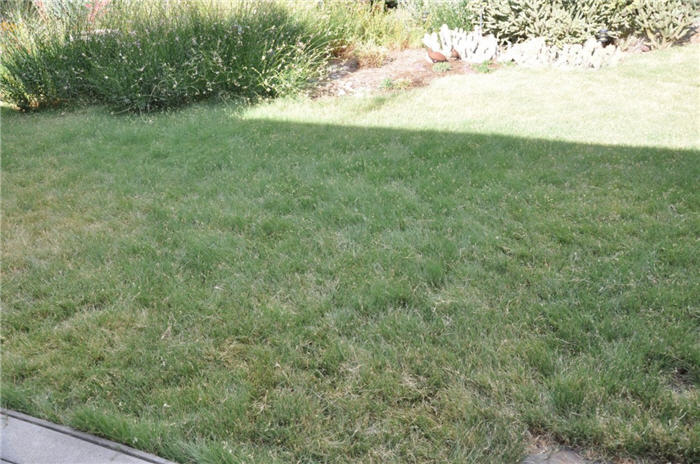| Botanical Name: Buchloe dactyloides | |
| Common Name: Buffalograss |

-
Anatomy
-
Culture
-
Design
Plant Type
Ground cover, Perennial, Grass
Height Range
Under 1'
Flower Color
Purple
Flower Season
Summer
Leaf Color
Green, Blue Green, Grey Green
Bark Color
n/a
Fruit Color
n/a
Fruit Season
n/a
Sun
Full
Water
Low
Growth Rate
Moderate, Slow
Soil Type
Clay, Loam, Rocky
Soil Condition
Average, Poor, Well-drained, Dry
Soil pH
Neutral, Basic
Adverse Factors
n/a
Design Styles
Japanese, Meadow, Mediterranean, Ranch, Seascape, Spanish
Accenting Features
n/a
Seasonal Interest
Spring, Summer
Location Uses
Lawn, Parking Strip, Walkways
Special Uses
Erosion Control, Mass Planting, Lawn Alternative, Naturalizing, Small Spaces
Attracts Wildlife
Birds
Information by: Stephanie Duer
Photographer:
Photographer:
-
Description
-
Notes
One of the very few drought tolerant North american grasses suitable for lawns. Buffalograss is a soft, grey-green to blue-green, warm season grass, growing 3 to 12 inches tall if left unmowed. Leaf blades are slender and curly, and the seed heads are compact. It spreads by rhizomes. It is a long-lived, warm season, sod-forming grass. Many varieties are available; it is even available in sod. Plant it with blueoats grama for a lovely, low-water lawn.
Buffalograss needs full sun and well-draining soil. It requires only 2 inches of water per month to stay green. It is a warm-season grass, which means it will be dormant (and tawny colored) from mid fall until the warmer part of spring. Plant seed, plugs, or sod (see Guides). Requires only 3 to 4 mowings all season, or don't mow at all, and have a billowy, prairie-like lawn.